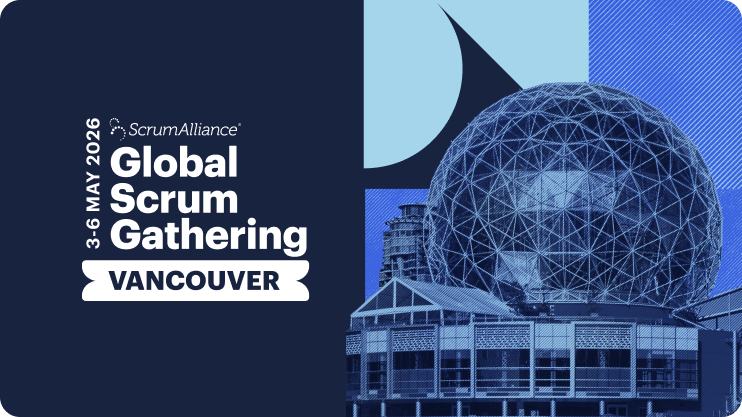Learn about purchasing for teams

Writing a great resume is hard enough, but the task becomes especially challenging for scrum masters. Whether you’re experienced at the role, changing careers, or just starting out, you’ll discover that your scrum master resume is different because the job itself is so unique.
Scrum masters are leaders within agile organizations, and they use a wide range of skills based on a variety of situations. For this reason, it’s hard to communicate what exactly a scrum master does day-to-day. That’s why we need to do a little work before we begin writing.
Start off by gathering data from previous experiences. This will include not only the names, dates and locations of places you’ve worked, but also some of the tangible information about what you did. If your employment history is less than a couple years, be sure to include success stories from school or community organizations.
To help identify your career highlights, I recommend using techniques like journey-mapping or mind-mapping. Ask yourself focussing questions, such as:
-
Were you ever on a high-performing team? What did you contribute?
-
Can you manage up? Can you lead without authority?
-
Are you a learner? How do you stay current in your field?
With the pre-work out of the way, now you write a quick first draft. The goal here isn’t perfection, so resist the urges of your inner critic for now… we can edit in the last step.
Did you know that people spend only seven seconds scanning the resume before making a decision? Start strong - the top third of your resume’s first page is prime real estate. Fill it wisely with a statement showing your passion for the scrum master craft and the problems you are made to solve. This addresses the number one challenge with transitioning to a scrum master role: there’s no traditional career path to this destination.
Keep in mind that bigger companies might have many hiring needs across a wide enterprise, and Artificial Intelligence helps these organizations filter stacks of resumes quickly by looking for specific keywords and phrases. On the other hand, smaller organizations may have more hands-on evaluation by hiring managers or HR folks. These organizations are less interested in resumes optimized around keywords. Instead, they seek our candidates who have a “roll up your sleeves and get it done” attitude, someone eager to add value and grow the company.
The following statement comes from a director at a very large company who reads a lot of resumes:
“I look for expressions on a resume that give me a sense that prospective candidates are not just process oriented but understand their courageous leadership role. When people pepper the resume with a bunch of certifications, that generally underwhelms me and in fact may be a sign that someone values labels over learning.”
Stories are a big deal. Even if you don’t have much direct experience, it’s not impossible to identify projects or responsibilities to show off your wins. Find opportunities in your school, church or community organization where you can help a team visualize a goal, break the effort into small, inspect able steps, and keep the team learning from the work.
People relate to stories. Lists of responsibilities and certifications, not so much.
As you revise your resume, you might find it spans multiple pages. Don’t sweat the length too much. While resumes can be long (especially if you’ve been in your career for a while and have many stories), something closer to one page is perfectly acceptable and more the norm.
Review for clarity and brevity. It should go without saying to list your name and contact info clearly at the top, followed by a compelling objective and summary. Remember to revise that top third so that your passion rings out. List your top skills and certifications, but don’t make them the focus; share many good stories instead.
Finally, I want to wish you luck on your journey. This is a very important topic for many of us, and I spent weeks interviewing leaders and collecting data to get these recommendations correct.
Go here for more tips, landmines, example language, and quotes from some very bright people who have been in the trenches of evaluating resumes and hiring outstanding scrum masters. Also, stop into this Coffeehouse for more.
Just starting your journey as a scrum master? Check out the Scrum Masters Starting Backlog
===
About the Author

Victor Bonacci, MBA, is a Scrum Alliance Certified Scrum TrainerⓇ (CST) living in southern California where he offers training, coaching and facilitation services. He provides space for dialogue and encourages learning on both the Agile Coffee podcast and his YouTube channel, Coffeehouse.
Unlock new possibilities as a Certified ScrumMaster
The Certified ScrumMaster course helps you gain the practical skills and mindset to guide teams toward success. Join a global community of professionals who make work more meaningful, one sprint at a time.










